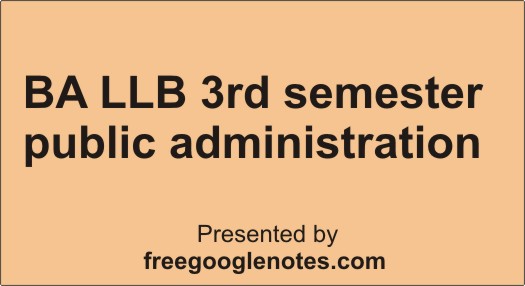Table of Contents
Communication skills pdf-essence of a good communication and selection interview techniques
You can follow us @freegooglenotes
Q.6.Explain the essence of a good communication system in an organization.
Communication is regarded as the basic skill of Management as it is an essential part of everything the business manager does. Only sending a message is not communicating. It is not One Way Street. It is a two-way affair. For communication to take place the message must be received by one whom it is meant. It is clear that communication is a transfer of information meaning and understanding from one person to another. The beginning of all the communication is an idea it must be clearly formulated in the mind of the sender.
The essence of good communication the essence of good communication can be explained with the help of the following for Communication Skills
(1)Correctness: In the modern business environment, business communication leads to expensive operations. The transmitter should be sure that he is transmitting correct facts incorrect language. the transmitter should not transmit any unless he is sure of its correctness. if the message is concerned with legal matters, the transmitter should know the correct legal position he committees anything. moreover, the transmitter should send his message at the correct time and incorrect style. it is made clear that correctness implies
(I) giving correct facts, (ii) at a proper time , and (iii) in an appropriate style.
(2) clarity: to make any communication effective the main responsibility rests on the shoulders of the sender or transmitter in the sense that communication possesses clarity which can be achieved through Clearly, simple, and easily extendable language. While communicating, the transmitter should view the education and experience of the receiver, familiarity with the language, otherwise, the purpose of communication is likely to be foiled. Any communication to be completed must be understood by the receiver and in response to that his views, ideas, and opinion are transmitted. Attention to clarity as such should be considered a prerequisite to effective communication.
The following points must be kept in the mind of the sender when he communicates the message:
(a) simple words: the transmitter must use the simple and short words for effective communication. It will be more effective if the transmitter uses’ tell’ Or ‘inform’ in his communication. the examples are:
Heavy words – facilitate, visualize, compensate Simple words– help, see, pay
(you can also read Communication skills- Importance of effective communication in modern business )
(b) avoid double entry: generally, the transmitter uses phrases with two words conveying the same message. The transmitter should use simple words or words. The examples are:
Double entry
Cost and amount of
10 a.m. in the morning
And result
Simple
Costs
10:00 a.m.
Result
(c) use words for nouns: for clarity, it is essential for the transmitter to use verbs in place of nouns. The examples are:
Using nouns
Take Into consideration
Make a decision
Using verbs
Consider
Decide
(d) use single words: a single word is more effective than long phrases. The long examples are:
Long phrases
At the present time
Will you be kind enough
In the event that
Single words
Now
Please
If
(e) used concrete expressions: concrete expressions create a visual images that is easy to understand the transmitter must avoid vague and general statements. The examples are:
Vague and general
Books are soon being
Dispatched
Concrete
Books will be dispatched
on April 30
(3) conciseness: transmission of maximum information by using a minimum of words should be the sender’s aim in letter writing. If the sender concisely writes what he wishes to say he will be able to arrest the attention of the receiver and focus it on the message. It may be noted that there is no hard and fast rule for the length of a letter
nothing of importance should be left out and yet necessary sentences should not be used. a letter should be as long or as short as is necessary to tell the facts. in letter writing phrases and clauses should not be used without thought. the examples are :
Verbose
Attach herewith
It is desired that we receive
This is to thank you
In the case of
For the month of May
Direct and concise
Attached
We want
Thank you
If
For may
(4) courtesy: courtesy is like the oil removes friction, it makes life smooth helps win friends. It is the inseparable companion of virtue.
It costs nothing but much is gained by it. It wins for us the respect, sympathy, and understanding of our correspondence. It should be remembered that writing discourteous letters is often very costly. the writer or sender may lose both friends and business. By courtesy is not meant the liberal use of such words or phrases as ‘please’, ‘thank you’ and ‘kindly’. It means a courteous attitude of mind. The following points must be kept in mind to promote courtesy :
(a) Answer / acknowledge the letter promptly,
(b) do not use any irritating expression,
(C) apologize sincerely for any omission and
(d) thank you generously for any favor.
The phrases italicized in the following examples may be found useful in tiding over a difficult situation:
(a) thank you very March for your letter of 9th December 2002.
(b) I am sorry that you did not receive the bags in time.
(c) I appreciate your writing To me so promptly.
(d) many thanks for your letter of 10th December 2002.
(You can also read 8 major objectives of Communication pdf )
Q.7.what do you understand by interview? What are the various techniques employed for selection interviews?
Ans. the word ‘ interview’. means ‘view between’ or ‘ sight between’.
It suggests a meeting between two persons for the purpose of getting a view of each other, or for knowing each other. when we normally think of an interview, we think of a situation in which an employer tries to size up an applicant for a job. The employer’s aim is to know whether the applicant can be of service to his company, and the applicant’s aim is to find out whether the job being offered by the company can be suitable for him. An interview is, thus, a means of two-way communication.
The selection interview is only one kind of interview, though it is a major one. Apart from it, there can be appraisal interview to assess the performance of employees, grievance interview to learn about their grievances or complaints, an exit interview with employees when they are leaving the company either on their own or through dismissal, reprimand interview when they are reprimanded on some disciplinary grounds, etc.
(READ:What do you understand by Communication? Importance of business communication complete note)
Selection interview techniques
A few basic techniques of an interview are as follows:
1. screening: Since the number of applications for any job is very large, several firms screen the applications to weed out unsuitable candidates. Then some more candidates are eliminated through a preliminary interview .only very few who are really good are called for the final interview.
2. Random appearance: Some interviewers still believe that the man is more important than the application. They want to judge a man by his personal appearance rather than on the basis of his application.
So they call every applicant for an interview. This method may once in a while throw some really brilliant candidate in one’s way, but it is usually expensive and confusing.
3. Tests: These days a number of firms resort to tests, written or oral designed to judge the candidate’s intelligence, general knowledge, proficiency in language, etc. In addition, psychological testing has also come into vogue. candidates who qualify for these tests are invited for a Final interview.
4. Experience: some employers believe that practical experience is more important than paper qualifications. 1 year of practical experience, they think, is equivalent to 15th years spent in schools and colleges. So they do not call fresh candidates for interviews. this is not a very sound policy since it eliminates freshers some of whom might be really brilliant, enthusiastic, and committed.
5. Under-stress interview: this is a special technique to ascertain how a candidate will acquit himself under conditions of exceptional stress and strain. He has exposed to embarrassing questions and provoked in various ways to find out whether he can retain his poise and equanimity in such trying conditions. This kind of interview is useful to select candidates for posts that require the great presence of mind and imperturbability of temperament.








